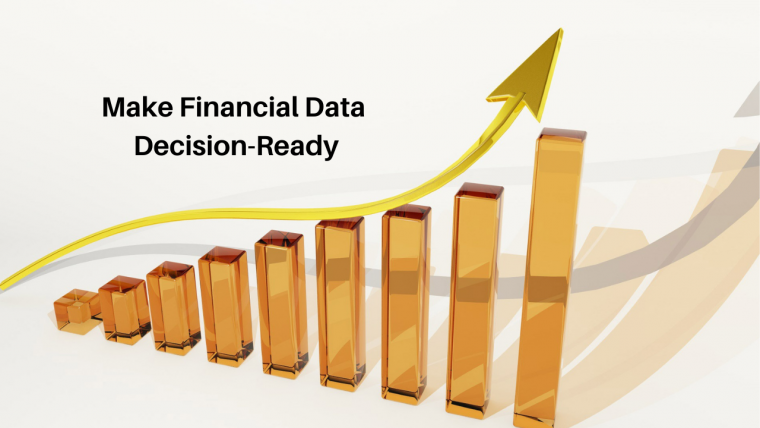Delivering Financial Data
The one-size-fits-all centralized data governance model has run its course in the financial industry. There is a need for a more efficient and that serves business better. Governance should be allowed to be distributed to data owners where appropriate, which would help the finance function optimize data to make decisions. Decision-readiness is much better than accuracy and precision because it is a much more consistent and complete process.
What if Financial Data were Made Decision-Ready?
- If financial data were made decision-ready, financial governance principles would be adapted for non-financial performance data. Decision-ready financial data would bolster trust in internal reports because it would incorporate more intuitive data as well as highly-governed data. This would also define the relationship between financial and operational data.
- If financial data were decision-ready, then it could potentially provide areas that have the most economic benefit with more opportunity to focus on data quality improvements.

Today, organizations are creating and utilizing a large and growing amount of transactional, operational, and other enterprise data. Oftentimes, finance will opt for a “single source of truth”, but that’s not enough anymore. While it can be useful at times, especially for organizations that require precision, but it’s not really that useful for decision making. When the data is provided without context or shared with a business in a way that it can’t easily absorb, then it becomes useless.
What Makes it Decision Ready?
According to research, finance needs more pragmatism and flexibility. Finance should deliver comprehensive data faster in order to make decisions, however, this could also take a toll on data accuracy. Instead of a “single source of truth,” finance should opt for a “sufficient version of the truth”, which is oftentimes enough. By making informed trade-offs between the cost of bad data and the effort needed for additional data governance, finance is able to provide a “sufficient version of the truth”, which benefits the business when done correctly and gives them a better outcome.
Data needs to be prepared differently for decision-readiness to be improved. To have a better decision-ready strategy, finance must support distributed data owners with guidelines on which data to govern and the extent of governance as well as effectively store and protect data.
The Framework to Exist
A framework is a good way to drive informed decisions about the trade-offs. Use it to gauge which data quality issues are most critical and assess the cost of poor data in terms of business factors, such as lost time and income, expenses and reputational damage.
A framework is needed for data quality, drives informed decisions about the trade-offs, and helps to make data governance more scalable. Even if the data isn’t perfect, mutually agreed data quality frameworks will create a shared trust that multiple versions of the truth are good enough to make well-informed financial decisions.
Financial Data-Driven Decision
Giving importance to financial data will lead to business decisions that can make companies succeed or fail. Its importance is apparent in terms of the consistency and growth stability of the business. The creation of new business opportunities, revenue generation, future trend predictions, current operational effort optimization, and production of actionable insights. Data-driven business decisions make or break companies.
What Twilight Capital Can Do For You?
Other Sources:
About the Author- Nikolas Perrault
Nikolas Perrault is a Chartered Financial Analyst with significant experience in the financial, technology, and natural resource industries. As founder and CEO of M&A and Capital Market Advisory consulting firm Twilight Capital, Mr. Perrault provides strategic advice to select clients on a global scale. Twilight’s primary focus is natural resource companies. Additional areas of interest include AI, healthcare, and Fintech.


